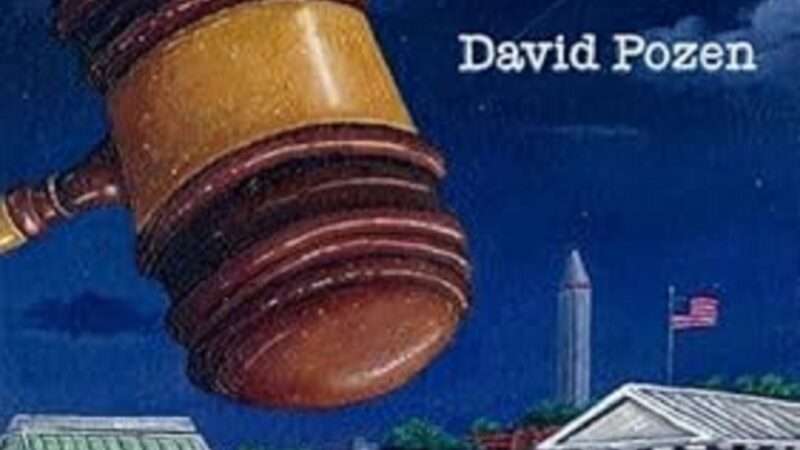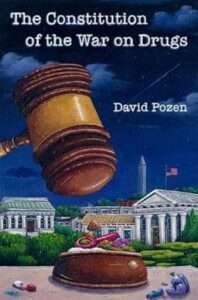

Today, the Jotwell website (which reviews new legal scholarship) has published my review of Columbia law Professor David Pozen's important new book, The Constitution of the War on Drugs. The review is entitled "The War on Drugs as a Constitutional Failure." Here are some excerpts:
If one of the purposes of constitutional law is to protect liberty against abuses of government power, the War on Drugs must be regarded as one of America's greatest constitutional failures. Over the last century, and especially since its expansion beginning with the Controlled Substances Act of 1968, the War on Drugs has led to thousands of needless deaths, the imprisonment of hundreds of thousands of people, and severe violations of civil liberties—all without doing much to curb the social problems of drug abuse and addiction. With rare exceptions, constitutional law has done little to curb these great evils.
In The Constitution of the War on Drugs, David Pozen gives us the most through and insightful overview of this failure to date. As he demonstrates, there were a number of plausible constitutional arguments for curbing the War on Drugs that—if accepted by the courts—might have significantly limited at least the most severe abuses. But, for the most part, they were rejected. He also offers useful suggestions for future strategy by drug law reformers.
Pozen's book is an impressive achievement, and there are many valuable lessons in it for both constitutional law scholars and those interested in the War on Drugs and criminal justice. But I do have some reservations about both his historical and doctrinal analysis, and his normative prescriptions.
As Pozen ably documents, the constitutional stage for the modern War on Drugs was set by two major developments of the Progressive and New Deal eras. The first was an expansion in the understanding of state "police power." Previously, many paternalistic regulations were likely to be struck down under the Due Process Clause of the Fourteenth Amendment or its state equivalents. The rise of anti-gambling and alcohol prohibition movements helped change that, leading courts to give state governments more leeway. This undermined potential individual-rights challenges to drug prohibition.
The second big shift was the vast expansion of federal regulatory power under the Commerce Clause, with decisions like Wickard v. Filburn (1942), giving the government the power to regulate almost any seemingly commercial activity, no matter how local….
While these early twentieth century developments opened the door to drug prohibition, Pozen explains that some jurisprudential trends since the 1960s made constitutional challenges to the War on Drugs potentially feasible.
Beginning with Griswold v. Connecticut (1965), which struck down a state law banning distribution of contraceptives to married couples, the Supreme Court issued a series of decisions protecting various personal liberties under the Due Process Clause of the Fourteenth Amendment, particularly those relating to reproduction and bodily autonomy. This opened up the possibility that the right to take illegal drugs might be similarly protected.
Later, a more conservative Supreme Court once again began to enforce limits on federal Commerce Clause authority, starting with United States v. Lopez (1995). This created hope that at least some types of federal drug prohibition might be invalidated as beyond the scope of congressional power.
Sadly, neither approach had much success…..
Pozen's otherwise thorough account does unduly neglect one important aspect of the story: the fact that the most severe drug war penalties are usually reserved not for people guilty of mere use or possession of drugs, but for those who produce, sell, and distribute them. Since the New Deal era, left-liberal jurists—and even many conservatives—have been wary of strong judicial review of "economic" regulations. This was at the root of both the New Deal Commerce Clause revolution (breaking down federalism restrictions to congressional power) and the Supreme Court's rejection of judicial protection for most economic liberties and property rights.
Seriously curbing the War on Drugs would have required courts to overcome this allergy to scrutinizing "economic" regulation. Progressives who (rightly) seek stronger judicial scrutiny of the War on Drugs will need to overcome at least some of their scruples regarding judicial review of economic transactions….
In the review also note some potential pathways for future progress, and urge opponents of the War on Drugs to combine litigation with political action.
The War on Drugs is one of the greatest injustices in American public policy, and also one of the biggest constitutional issues in modern time. Pozen's book is a major contribution to our understanding of the relevant history and legal doctrine.
The post My Jotwell Review of David Pozen's "The Constitution of the War on Drugs" appeared first on Reason.com.






